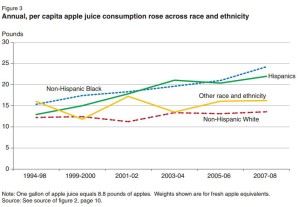The well deserved fuss over the UK’s childhood obesity plan
The much delayed UK government’s plan for dealing with childhood obesity has finally been released to virtually universal dismay over the missed opportunity.
The strategy is now a Plan, and says it is “the start of a conversation.” It reconfirms the government’s intentions to implement a soft drink tax, subject to consultation, but does not include a range of measures recommended by its own Public Health England and by last year’s House of Commons Health Committee, such as reduce food marketing and controls on retail promotions. It relies on voluntary sugar reduction by the food industry and encouraging parents to help increase children’s physical activity to meet the recommended 1 hour per day.
It’s fun to read the criticisms: nobody minces words.
The UK Government’s long-anticipated response to the childhood obesity crisis disappointed everyone. From doctors, health charities, and celebrities to the very industry it seeks to propitiate, the Childhood Obesity Plan, published with as little noise as possible in the summer recess, has met with resounding criticism. As a Comment in today’s Lancet highlights, the strategy has been delayed for a year, and in that time it has been watered down to a vague Plan with no teeth. Reading the report from start to finish gives the impression that its authors haven’t.
The Lancet editorial continues
The absence of curbs on industry practices that contribute to childhood obesity—promotions of unhealthy food in supermarkets and restaurants; advertising of junk food through family TV programmes and social media—seems like a gift to industry.
The Lancet is especially miffed because it ran a series on obesity last year that made it clear what kinds of policies needed to be enacted.
Also in The Lancet, World Obesity’s Tim Lobstein and Klim McPherson say
What we read in the government’s Plan is nothing particularly new, nothing bold, and very little that can actually be measured to assess the Plan’s success. It is a document that is not only a disappointment to public health professionals, but also evidence of a government walking away from its moral duty to protect the health of children, and its fiscal duty to protect the NHS from the consequent costs.
The Association for the Study of Obesity (ASO) issued a statement:
the plan is a lost opportunity to provide leadership and commitment in tackling childhood obesity as part of a whole systems approach. It lacks bold actions that are needed to reverse the current high levels of child obesity such as: a ban on junk food advertising before the 9pm watershed; reduction in portion sizes; reformulation targets for industry that address high energy density foods; curbing the promotion of unhealthy foods in supermarket; investment to increase and extend evidence-based child weight management services. All of these would be robust, evidence-based actions and would start to tackle the root causes of obesity in this country.
Again in The Lancet, Yoni Freedhoff and Kevin Hall point out the need for more sensible weight loss studies:
Over the past several decades, dozens of randomised controlled trials have compared various diets for the treatment of obesity. Ideally, such studies should have provided strong evidence for clear clinical recommendations and also put a stop to society’s endless parade of fad diets. Unfortunately, the evidence base remains contested and the “diet wars” continue unabated…What is especially striking is the similarity of the long-term pattern of mean bodyweight change, irrespective of diet prescription.5 …Fewer resources should be invested in studying whether or not a low-carbohydrate diet is marginally better than a low-fat diet, or whether intermittent fasting provides marginally better short-term outcomes than a so-called Paleo diet.
Their study provides further evidence why we need stronger policies for preventing obesity. It’s too bad the UK couldn’t do better.
And if you think things are any better in New Zealand…
The food industry has hit out at claims in a leading journal that New Zealand’s childhood obesity plan was flawed and that the government valued corporate profit over public good. The Food and Grocery Council said that an editorial in the New Zealand Medical Journal, which claimed that the government’s strategy did not address excess sugar intake, was “flawed on many fronts. Moreover, the FGC complained that its response to the article, solicited by Fairfax Media, was not run.
Addition, September 14




